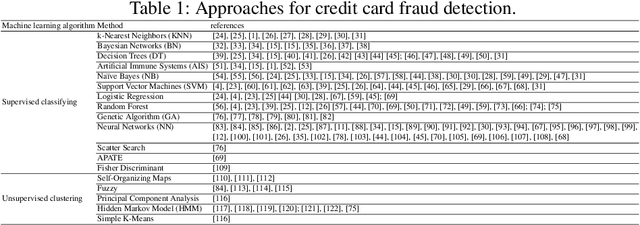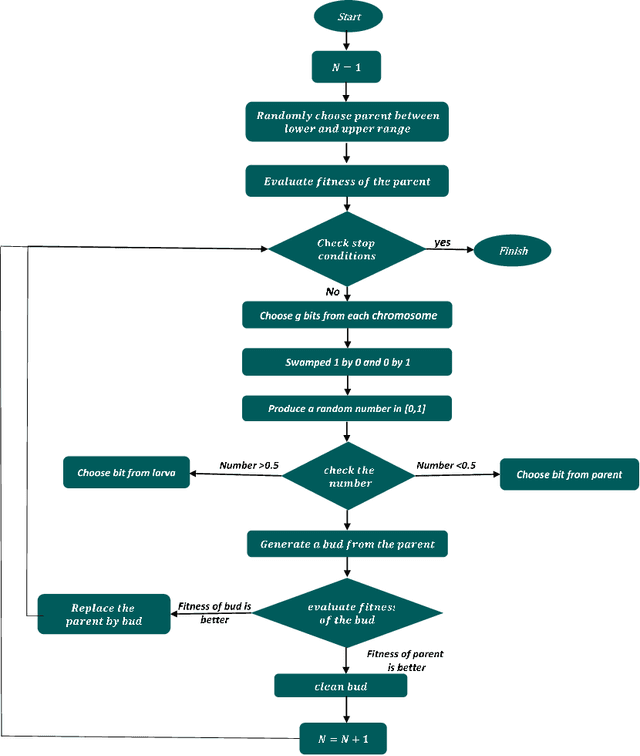Taha Mansouri
Credit Card Fraud Detection Using Asexual Reproduction Optimization
May 31, 2023



Abstract:As the number of credit card users has increased, detecting fraud in this domain has become a vital issue. Previous literature has applied various supervised and unsupervised machine learning methods to find an effective fraud detection system. However, some of these methods require an enormous amount of time to achieve reasonable accuracy. In this paper, an Asexual Reproduction Optimization (ARO) approach was employed, which is a supervised method to detect credit card fraud. ARO refers to a kind of production in which one parent produces some offspring. By applying this method and sampling just from the majority class, the effectiveness of the classification is increased. A comparison to Artificial Immune Systems (AIS), which is one of the best methods implemented on current datasets, has shown that the proposed method is able to remarkably reduce the required training time and at the same time increase the recall that is important in fraud detection problems. The obtained results show that ARO achieves the best cost in a short time, and consequently, it can be considered a real-time fraud detection system.
A New Algorithm for Hidden Markov Models Learning Problem
Feb 14, 2021



Abstract:This research focuses on the algorithms and approaches for learning Hidden Markov Models (HMMs) and compares HMM learning methods and algorithms. HMM is a statistical Markov model in which the system being modeled is assumed to be a Markov process. One of the essential characteristics of HMMs is their learning capabilities. Learning algorithms are introduced to overcome this inconvenience. One of the main problems of the newly proposed algorithms is their validation. This research aims by using the theoretical and experimental analysis to 1) compare HMMs learning algorithms proposed in the literature, 2) provide a validation tool for new HMM learning algorithms, and 3) present a new algorithm called Asexual Reproduction Optimization (ARO) with one of its extensions - Modified ARO (MARO) - as a novel HMM learning algorithm to use the validation tool proposed. According to the literature findings, it seems that populationbased algorithms perform better among HMMs learning approaches than other algorithms. Also, the testing was done in nine benchmark datasets. The results show that MARO outperforms different algorithms in objective functions in terms of accuracy and robustness.
 Add to Chrome
Add to Chrome Add to Firefox
Add to Firefox Add to Edge
Add to Edge